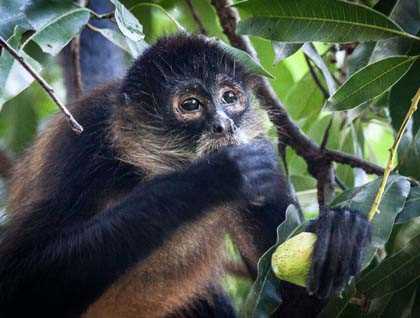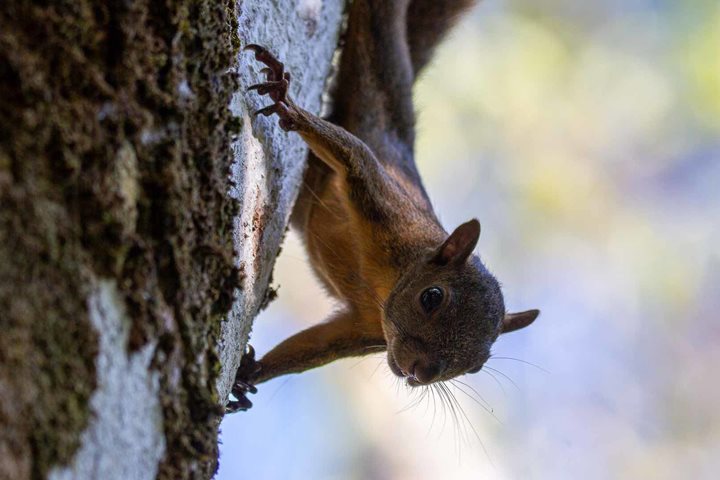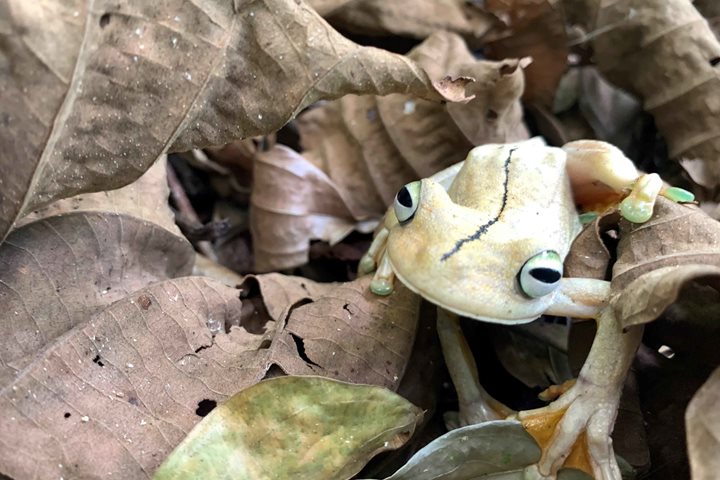During the middle of the night we lifted anchor and sailed around the Osa Peninsula and into the tranquil waters of the Golfo Dulce, further south and closer to the neighboring country of Panama.
Daybreak caught us still navigating, though this was hardly noticeable, because the water is so calm here. The scenery in the morning was truly breathtaking! An intense blue sky with just a few clouds, and all around us was dense green pristine forest.
It is a beautiful place! No wonder some world travelers have decided to settle down here; people such as Trudy and Ron McAllister, two American expatriates who, during their youth globetrotted around the world, and when they finally got here decided to call this remote place their home. This morning after breakfast we had the chance to visit their home, a sort of Garden of Eden that lovingly and with a lot of hard work they have put together during the last thirty years. The name of their place is Casa Orquideas.
Sadly today we couldn’t really enjoy Casa Orquideas as we usually do, because we had a “too close” encounter with nature, one of those rare encounters with the natural world that we would have preferred to avoid.
Nature is always unpredictable! As soon as we started our walks through the garden, we ran into a spider monkey that was very actively posing for us. Little did we know that the spider monkey would inadvertently disturb a nearby hive of killer bees. Unfortunately, our visit to Casa Orquideas ended sooner than planned.
A pity! Killer bees are just another one of the stories of people trying to do something good that ended up going south. And south is where this started. Apparently some scientists in South America hybridized European bees with African bees and successfully created a more productive bee that had the serious drawback of also being much more aggressive. During their experiments, one of their hybridized queens escaped, and nowadays these bees can be found potentially anywhere where it is warm enough for them to live. Apparently in the Americas pretty much all bees are already “Africanized” to a certain degree. Bees are economically very important to the pollination of our crops, along with the production of honey, of course. It is virtually impossible to eliminate them all, so we have no choice but to try to learn to coexist with them and avoid them.
Later in the afternoon we repositioned to our last port of call before leaving Costa Rica, at the port of Golfito, for the immigration paperwork. We had the opportunity of doing some kayaking and guided boat rides in the nearby mangrove forest and adjacent vegetation, to see some of the plants, trees, birds and animals that inhabit this important ecosystem. Safe and sound and away from the bees and in preparation for tomorrow when we will be in the beautiful beaches and coral reefs of Panama.







